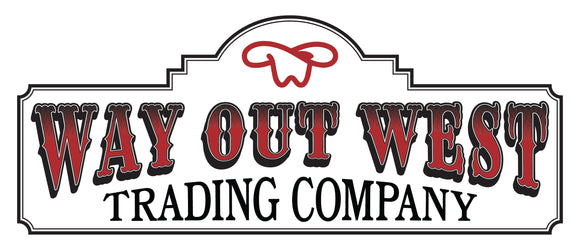In God We Trust

Unveiling the Legends of the Wild West: Outlaws, Lawmen, and Their Untold Stories
The Wild West, a realm of untamed frontiers and untold stories, holds a timeless allure that captures the imagination. Within its vast expanse emerged figures whose legacies would shape not only their era but echo through history—the outlaws and lawmen. Beyond their deeds, their very identities were forged through a crucible of events that unfolded in this tumultuous landscape. Join us as we embark on a journey that unearths intricate details, motivations, and the defining moments of these iconic individuals who indelibly left their mark on the American West.
The Outlaws: Defying Convention Through Deeds Jesse James, often regarded as the epitome of the outlaw, was a mastermind of calculated chaos. His meticulously planned bank and train heists, executed with precision and daring, made him a legend in his own lifetime. What motivated this former Confederate soldier to embark on a criminal path that would earn him both admiration and condemnation? His exploits were driven by a cocktail of revenge against perceived injustices and a flair for showmanship. The calculated audacity of James' crimes struck a chord with a populace that saw him as a symbol of resistance against corporate greed and government overreach.
Billy the Kid, born Henry McCarty, epitomized the defiance of youth in a land rife with lawlessness. Escaping custody multiple times, he managed to navigate a treacherous path between criminality and celebrity. But who was the young man behind the alias? His life was one of hardship and transience, marked by the loss of his parents and a succession of brushes with the law. The notorious conflict known as the Lincoln County War became a defining moment in his life, propelling him into the realm of outlawry and catapulting him into the annals of history.
Butch Cassidy, a name synonymous with the romanticized notion of the outlaw, had a strategic mind that rivaled his daring exploits. Leading the infamous Wild Bunch gang, Cassidy orchestrated a series of train robberies that sent shockwaves through the West. Behind the charismatic facade lay a shrewd strategist who believed that targeting corporations was a justifiable means of wealth redistribution. The allure of a life unrestrained by societal norms and the camaraderie of his gang offered Cassidy a sense of freedom that kept him forever eluding the long arm of the law.
The Lawmen: Upholding Order Against All Odds Wyatt Earp, a towering figure in the annals of law enforcement, found himself at the center of the Gunfight at the O.K. Corral—an event that would crystallize his legacy. But Earp's life was far from a mere shootout. He journeyed from his days as a buffalo hunter to a lawman determined to maintain order, even if it meant confronting personal danger. The vendettas that punctuated his life and the alliances he forged with other lawmen added layers to his complex persona.
Pat Garrett, tasked with capturing the elusive Billy the Kid, embarked on a mission that would forever intertwine their fates. Garrett's pursuit, culminating in the dramatic encounter that ended the Kid's criminal escapades, earned him both accolades and controversies. Garrett's own life, fraught with personal and professional challenges, mirrored the tumultuous nature of the era. His role in bringing down one of the West's most infamous outlaws solidified his place in history.
Wild Bill Hickok, celebrated as both a gunfighter and lawman, stood as a paradox in the annals of the West. His quick draw and legendary poker skills often overshadowed his time as a lawman. His tenure as a sheriff and marshal, however, revealed his dedication to maintaining order. From his time as a scout for the Union Army to his days as a lawman in frontier towns, Hickok's life wove a tapestry of intrigue and adventure.
The Code of the West and Identity: A Paradox of Values The unwritten Code of the West, a moral compass in an often lawless land, exerted a significant influence on the decisions of both outlaws and lawmen. For outlaws, this code justified their actions as a form of rebellion against a system they deemed corrupt. To some, the likes of Jesse James and Billy the Kid represented a romanticized resistance against powerful entities. Lawmen, too, subscribed to this code, aiming to restore order in a landscape where chaos was often the norm. The shared ethos underscored the blurred lines between right and wrong, morality and expediency, as they navigated the complexities of their roles.
The Legacy: Immortalized in Myth and Media The legends of the Wild West continue to captivate through literature, film, and television. Clint Eastwood's portrayal of the Man with No Name encapsulated the rugged individualism that defined the era. "Young Guns" and "Tombstone," among other films, translated historical events into gripping narratives, perpetuating the fascination with these characters. The cinematic interpretations, though embellished for dramatic effect, capture the essence of the larger-than-life personas that continue to intrigue.
Conclusion: A Legacy Carved in History As we delve into the lives of these figures, we uncover not only the events that defined them but also the spirit of an era marked by individuality, survival, and audacity. They were products of their environment, shaped by challenges, aspirations, and the relentless pursuit of their own version of the American Dream. Each chapter in their lives adds to the complex tapestry of the Wild West, reminding us that history is a tapestry woven with the threads of individual courage, cunning, and resilience.
In exploring the lives and motivations of outlaws and lawmen, we find a reflection of our own timeless fascination with the challenges and aspirations of an era that continues to captivate our collective imagination.
